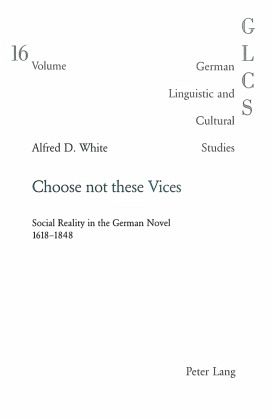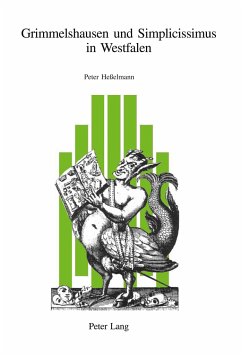
Choose not these Vices
Social Reality in the German Novel 1618-1848
Versandkostenfrei!
Versandfertig in 6-10 Tagen
77,40 €
inkl. MwSt.

PAYBACK Punkte
0 °P sammeln!
From the late seventeenth century into the eighteenth, critics and authors in Germany defended the novel: indeed it depicted vice and immorality, but only with the intention of exhorting the reader to avoid such dangers to the soul. This book examines outstanding novels of life from the Thirty Years' War to the Vormärz, mostly written with this real or apparent moral aim, and evaluates them as documents of social history. The author finds that concepts of truth and plausibility are different in the early modern period. Initial and closing chapters deal with French novels, showing how approach...
From the late seventeenth century into the eighteenth, critics and authors in Germany defended the novel: indeed it depicted vice and immorality, but only with the intention of exhorting the reader to avoid such dangers to the soul. This book examines outstanding novels of life from the Thirty Years' War to the Vormärz, mostly written with this real or apparent moral aim, and evaluates them as documents of social history. The author finds that concepts of truth and plausibility are different in the early modern period. Initial and closing chapters deal with French novels, showing how approaches to society differ across national cultures.














